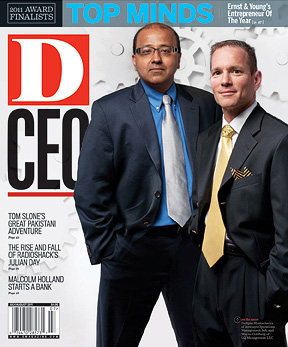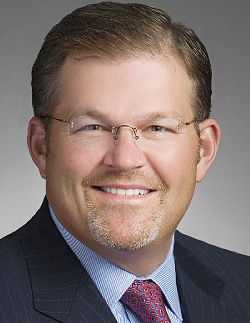
John R. Thomas
President and CEO
Changes in health care laws, coupled with one of the worst economic climates in history, might have derailed growth for MedSynergies. Instead, the Irving-based medical practices management company is on track to record more than $90 million in revenue in 2011. Its contracted backlog of business grew from $150 million to more than three-quarters of a billion dollars over the past 12 months, according to John (“J.R.”) Thomas, president and CEO.
MedSynergies works with physicians and health care organizations to align their operations through practice and revenue cycle management, consulting services, business process analysis, and software integration. The company’s growth strategy through challenging economic times has been to maintain “clarity of purpose,” says Thomas, who’s been with MedSynergies since its inception 15 years ago. “We knew exactly what we could deliver operationally and we focused on that.”
In January, a joint venture between MedSynergies and Arlington-based Texas Health Resources Inc.—Texas Health MedSynergies—gained about 420 providers and medical professionals when THR acquired Dallas-based MedicalEdge Healthcare Group. THR also purchased PhyServe, the management services organization that served MedicalEdge physicians, and, in turn, sold PhyServe to MedSynergies.
Also in January, MedSynergies moved its headquarters into 77,000 square feet in Las Colinas, consolidating local operations into one
building. The company has 600 employees and regional offices in Little Rock, Ark., and Urbana, Ill. —G.V.
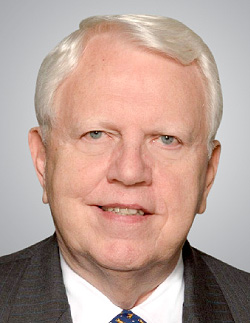
Roger Linquist
Chairman, President, and CEO
In his 72 years, Roger Linquist has studied rocket science at Purdue University, worked on some of Texas Instruments’ first commercial calculators in the 1970s, and grown MetroPCS from three to 3,600 employees and more than $4 billion in annual revenue.
Most people would be satisfied with those results, but Linquist isn’t done yet. “The job is never finished if the goal is to grow your company in a very competitive marketplace,” he says.
The long-time wireless veteran founded PageMart Wireless (now USA Mobility) in 1989, and was a founding director of the Cellular Telecommunications and Internet Association. In 1994, he and two others co founded MetroPCS (then called General Wireless Inc.) because they saw a need for affordable wireless service for everyone. Their no-contract business model with locked-in rates was in sharp contrast to the other six national carriers of wireless services operating at the time.
Richardson-based MetroPCS now has more than 8.9 million subscribers and is the fifth-largest infrastructure-based company in the country. In April, the company launched its 4G long-term evolution network in all 14 of its markets across the United States.
Linquist maintains day-to-day involvement with the company and says a positive work environment and loyal employees are keys to his success. I am “self-driven, but recognize that people on your team are the difference between success and failure,” he says. —K.N.
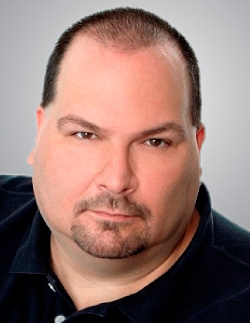
Lance Crosby
CEO
Average is not a word you’d use to describe Lance Crosby, who came into this world 2 feet tall and weighing 13 pounds. Today he’s 6-feet-6 inches tall and weighs in at 350.
The SoftLayer Technologies CEO often tells his 600 employees that the greatest sin in life is to be average.
Crosby is helming a company that is anything but ordinary. In 2005 he left The Planet, a web hosting company, to found Dallas-based SoftLayer, because he saw a huge opportunity for what is now known as cloud computing.
“We were cloud before cloud was cool,” he says of the virtual data-center hosting phenomenon.
Late last year, The Planet merged with SoftLayer, bringing together two generations of companies with a long history. More than 30 employees have taken the loyalty plunge and tattooed SoftLayer’s three distinct software bars on their bodies. Crosby proudly boasts one on his arm.
The privately held company that works hard and plays hard is experiencing skyrocketing growth. Crosby estimates revenue will hit $350 million this year, up from $285 million in 2010. Much of the growth is being driven from new business related to social networking, gaming, and iPhone apps that use SoftLayer as a delivery platform.
During next 24 months the company plans to expand its cloud service and application offerings and open new data centers in Europe, Asia, and South America. —K.N.
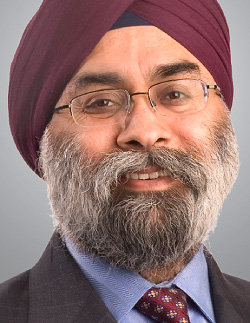
Gurvendra S. Suri
Founder and CEO
At a time when expanding companies were just beginning to invest in large-scale enterprise-technology systems—systems that were often fraught with costly mistakes—Gurvendra Suri saw the need for consultants with the experience and know-how to complete these technical projects on time and on budget.
Suri says he wanted to provide businesses with a true, seamless integration of multiple systems deployed across a global enterprise. So he assembled a team of world-class technologists with a deep understanding of business processes and proven expertise with SAP software. In 1995 he founded Optimal Solutions, specializing in helping companies and public sector organizations of all sizes leverage SAP technology.
Suri’s tenacity and entrepreneurial vision have allowed Irving-based Optimal Solutions to sustain year-over-year growth—despite the recent economic downturn—and evolve into the leading, pure-play SAP consulting firm in North America. “My plan is to grow the company substantially over the next several years, and to establish Optimal as the premier SAP services organization in the world,” he says.
Besides his numerous awards for business ethics and entrepreneurship, Suri claims his greatest accomplishment—along with raising two “wonderful” daughters—has been founding Beyond Borders in 2003. Beyond Borders is a private charity that helps disadvantaged people in the form of medical care, educational grant scholarships, and vocational facilities. It also finances organizations that protect the civil rights of minorities. —K.A.
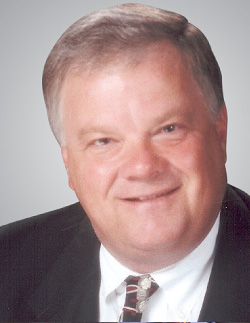
Ronald Ross
President and CEO
Talk about an inauspicious beginning.
SRS Acquisition Corp., an aggregator of roofing supply businesses, debuted three years ago by buying a bankrupt firm in Florida—and then had to overcome a paralyzed housing market.
“The first two years out of the box we went downhill substantially,” says president and CEO Ronald Ross matter-of-factly.
But Ross’ fearless leadership proved to be the solution to the McKinney firm’s problems. SRS is now turning a profit in the daunting Florida market and has bought 15 additional companies—and it’s still counting. That, along with substantial organic growth, explains the business’ $350 million in annual revenue.
Ross was the right man to lead SRS through ugly business conditions in part because of his confidence, and in part because of his experience. He had successfully built two other similar operations prior to SRS, gaining business savvy and accruing a wide network of top-flight professionals. Of the company’s 600 employees, more than 150 worked under Ross at one or more of his previous firms.
“This is the third time I’m doing this,” he explains. “We know how to buy good businesses and build a good nucleus of executives. I don’t have to tell people what to do.” —S.G.
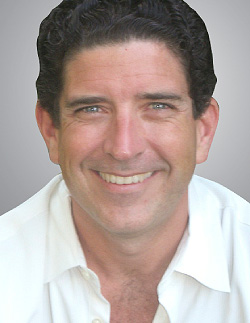
Neill Roderick (Rod) McGeachy III
President and CEO
When Rod McGeachy took over as president and CEO in 2008, Dallas-based Tandy Brands Accessories was in a five-year revenue slide. “Even as an outsider, I knew the company needed deep, fundamental changes,” McGeachy says. He learned just how deep during his first meeting with the company’s primary lender, Comerica Bank.
Tandy, which designs and markets belts, wallets, and gift items to retailers, had struggled through long periods of negative cash flow, unmet projections, and unfulfilled requirements of its debt agreement. Comerica was concerned about the company’s future, and gave McGeachy 90 days to find another lender.
He moved quickly to change the situation. Within six months Tandy had positive cash flow and was meeting its earnings projections and debt agreement requirements. Comerica is still Tandy’s primary lender.
“Turnarounds are not for the faint of heart,” McGeachy says, but his efforts are showing results. The company has gone from a net loss of $15 million to a positive gain of $1 million (fiscal 2009-2010). In July 2009, Tandy acquired a major competitor, Chambers Belt Co.
Turnaround efforts continue, but now the company is on a more positive track. A new management team is in place. The number of distribution centers was reduced from four to one. Low-revenue-producing product lines were eliminated and new product lines are planned. Steps also were made to improve employee morale, including a new denim-friendly dress code, half-day Fridays during summer months, and upgrades to healthcare and 401(k) plans. —G.V.


